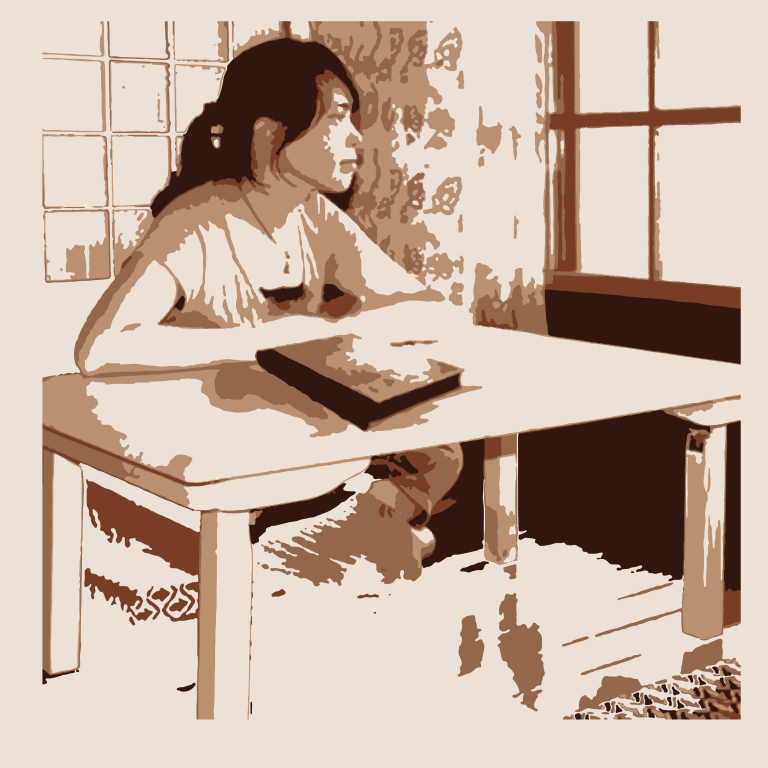Baking new recipes, reading books on our never-ending to-read lists, brushing up on instruments we used to play and mastering TikTok dances are just a few of the ways that people have been filling their time during this pandemic. And in each of those tasks we have the ability to learn something new, but these things can only sustain our energies for so long before bitterness begins to set in, and we are forced to learn something about ourselves.
For some, it has been difficult adjusting to this new reality.
“Most mornings feel like a lazy Saturday, and as a senior who doesn’t have a job lined up after graduation, it’s hard to see the value in completing every online assignment or sitting in on every Zoom class when most days will still feel like a lazy Saturday when the semester ends,” said Collegian Executive Editor and senior Katherine Sheets.
During a time where the world has essentially stopped, it only makes sense that we would feel a lack of motivation. If the world has stopped, why should we continue? This lack of motivation easily turns into questioning the purpose behind why we’re doing things and even if it’s even worth it, which eventually manifests into bitterness.
“As much as I believe that everything happens for a reason, this season has been difficult for me,” said senior Jana Wiersema, managing editor of the Collegian. “At times, it’s hard to see the good in this situation. And as a kid who moved a lot growing up, getting the final weeks of my senior year ripped away from me stings. At times, it feels as if I’m never allowed to have closure in any phase of my life, as if this is just typical of how things go for me.” She added that when she got into this frame of mind, she realized that she needed to be honest with God about her anger and resentment.
Bitterness often causes us to be consumed by our feelings, which allows us to start believing that everything happening in the world was specifically designed to be against us. This attitude makes it seem as if the pandemic is a personal attack against our own lives and the plans we made. While this isn’t true by any means (and we should acknowledge the individual privileges we harbor), we should also be very intentional about granting ourselves the space to express our feelings of frustration, hurt, anger and, ultimately, the sense of being wronged.
“It has been difficult to watch our seniors struggle with such an abrupt and unforeseen ending to their semester,” journalism professor and Collegian advisor Rich Manieri said. “Asbury is a special place and not being able to be on campus has been particularly hard.”
However, through spending time in God’s Word and using this time to read the Bible from front to back, Manieri said he became “keenly aware of both our human frailty and God’s Providence.”
He found comfort in Habakkuk, as the writer of the book attempted to understand and comprehend the injustice happening in the world around him. God’s response can be found in Habakkuk 2:14, which says, “For the earth will be filled with the knowledge of the glory of the Lord as the waters cover the sea.” The verse helps communicate, as Manieri puts it, that “the Lord is the foundation of and our reason for hope.”
Thus we must acknowledge that our hope cannot be based on the activities that we’ve decided to fill our schedules with or on new talents we’ve acquired. Instead, it is based upon our foundation of faith, which allows us to wade through our emotions of anger and bitterness.
If we hold onto these feelings, we extend our mental and emotional pain, “compromise or weaken higher ideals” and even undermine our physical health, according to Psychology Today.
Collegian opinion editor and sophomore Anna Lauren Jacobs experienced this prolonged sense of frustration as a result of not coming to terms with the effects of the pandemic, and downplaying the emotions associated with what it meant for many things to end.
“I have spent much of this time in denial that this is really happening, thinking that any day it could just end, and we could all wake up from this dream,” said Jacobs. “I think that wasted a lot of valuable time and created a lot of difficulty in maintaining a positive attitude.”
If we continue to harbor feelings of frustration, anger and bitterness, we will eventually come to a breaking point. We each must come to the decision of whether or not we’re going to choose to continue in our bitterness and endless activities, or rely on a foundation of hope.
So while you may come out of the other end of the pandemic with a new skill that you can show off to all your friends, remember where true peace and hope is found.
“God is the only one who knows what’s going on right now,” said Sheets. “He’s the only one able to bring you peace during this madness.”




